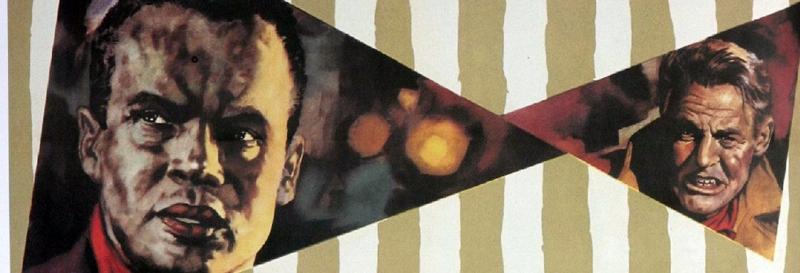
Odds Against Tomorrow
Citizen Kane editor and Sound of Music director Robert Wise helms this film noir, the first to feature a black protagonist, Harry Belafonte. A racist ex-con is invited to take part in a heist, but is reluctant when he finds out one of the bank robbers is black.
Odds Against Tomorrow is a strange beast. 1959 feels late for a film noir, but it fits firmly in that camp. The lighting is moody. It’s unclear what time of day it is. Characters have harsh shadows painted across their faces. I read somewhere that Wise used infra-red film at some points, giving a disturbing quality to the movie.
Like most noir films the plot is driven by broken, greedy characters but unlike the norm, it’s also driven by race. There’s no heavy handed white guilt at play though; Wise cleverly makes his point by landing his characters in the same boat. It’s the old ‘show don’t tell’ trick and it makes Odds Against Tomorrow meaningful rather than tiresome.
Fans of film noir should look past the late production date and the modern central theme. This is a fantastic, exciting film that has the same timeless quality as the best of them.